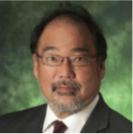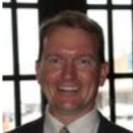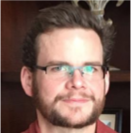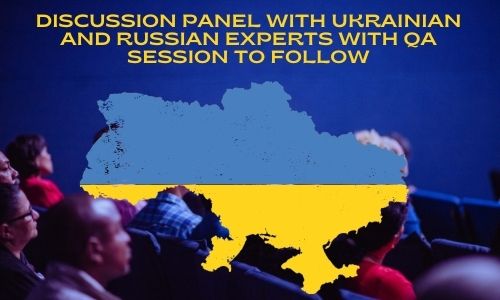Questions about Ukraine and Russia?
Join JSU Political Science Faculty as we connect to an informal discussion with three experts concerning Ukrainian and Russian situation and how it may impact us here in Alabama as well as the international impact. The Department of Political Science is hosting an informal discussion concerning questions about Ukraine and Russia. The panel includes three experts in global politics. The University of North Texas is a Tier One research university by the Carnegie Classification. Its Department of Political Science has a PhD program that ranks within the top 60 programs by U.S. News Rankings. This department has numerous scholars studying international relations, conflict, and peace studies, it houses the Castleberry Peace Institute, and it was the editorial home of the American Political Science Review(the world’s premier journal of political science) from 2012 to 2016.
The Calhoun County Journal had the opportunity to speak to Dr. Benjamin Gross with JSU’s Political Science department who wanted to explain why this international event has a direct impact on the local residents here in Alabama.
“The ‘Long Peace’ is a phenomenon that many have assumed as a given. By Long Peace, I mean the general period of peace that has existed from the end of World War II till today. While the United States, Alabama, and Jacksonville State University are geographically far away from this conflict, the current Russian aggression is a challenge to an assumption that we have built our daily lives around.”
“The international system is not a given. For many decades, the United States has promoted and enjoyed an international system that it developed, supported, and prospered from. The fall of the Soviet Union at the end of the 20th century allowed for the proliferation of these ideas across most of the globe. The Russian military action against the state of Ukraine reminds us that an international system that benefits the United States is not a natural fact. It takes work, commitment, and more to secure this international system.”
“The West has had shared ideas or ideals of progress. Russia and other states may be testing if The West is still unified and shares a common idea of progress. The pursuit of happiness is different from knowledge of happiness. There are different types of regimes, in states across the globe, that are challenging if the ideas and ideas that many hold true in the United States are desirable, defensible, and demonstrable. Or, in other words, are there methods, which are ‘better’, to achieve the ends desired by the United States, The West, and liberal democracy.”
“We have to remember that all states (e.g., The United States, Russia, Ukraine, South Korea, Chad, Brazil, and so forth) are designed to provide national security and defense. When a state thinks its security is threatened, this security dilemma can produce conflict. This act of Russian aggression has been building for years. How to resolve conflict that is due to the security dilemma is a difficult question.”
The Calhoun County Journal also spoke with Dr. Tim Barnett with JSU’s Political Science Department. Dr. Barnett has worked directly with Ukrainian and Russian exchange students and is very familiar with both of their cultures.
“The Ukraine is a nation that Alabamians need to know more about. Established by reputation in the 6th century as a people from which the modern nation is derived, the region was colonized by the Greeks, the Romans and the Byzantines from long ago. Not long after taking form as a republic in 1917, the Ukraine was absorbed by the Soviet Union. A long series of deprivations followed, forcing the people to either choose optimism (for which they are widely known) or to surrender to discouragements.
Among the challenges the Ukrainians have surmounted was the Holodomor or ‘terror famine’ of 1932-33 — a tragedy that is believed to have killed between 3–6 million Ukrainians. Scholars debate whether Joseph Stalin planned the famine to crush an independence movement or whether the tragedy resulted from communistic mismanagement of the agricultural system. Either way, the shadow of Russia has loomed large over the Ukraine on many occasions in this century and the previous one. Now, the world must decide whether Ukrainian independence, reestablished in 1991, will hold.
While most Ukrainians don’t want to be a vassal state to Russia, they are not strong enough to withstand the Russian aggression unless Russia loses its resolve because of the determination of the West to unite and hold firm against Russian incursions. Granted, if we attended more prudently to our own domestic shortcomings, our example might exert a more persuasive, positive force worldwide.
At the minimum, Americans need to become better acquainted with the history, circumstances, hopes and dreams of the Ukrainian people. Consequently, the Tuesday, March 1 event at JSU on the Ukrainian situation is of considerable importance to the university and to our local community.”
The experts that will be speaking are Dr. John Ishiyama, Dr. Paul R. Hensel, and Dr. Michael Grieg.

President of the American Political Science Association Expert on political parties and democratization of post- Communist Russia & Europe
Dr. John Ishiyama is the President of the American Political Science Association, which is the leading professional organization for the study of political science. He is the former lead editor of the American Political Science Review and is a Distinguished Research Professor of Political Science at the University of North Texas. His research focuses on democratization and political parties in post-communist Russia, European, Eurasian, and African politics, ethnic conflict and ethnic politics, and other areas of comparative politics.

Co-Director of Issue Correlates of War Expert on international conflict, territorial claims, and international rivalries
Dr. Paul R. Hensel is a Professor of Political Science at the University of North Texas and is the founder and co-director of the Issue Correlates of War (ICOW) research project. The project’s main contribution is the collection of data on the salience and management of contentious issues around the world, which includes territorial claims, river claims, maritime claims (collected and maintained by Sara Mitchell), and regime claims (collected and maintained by John Tures). His research studies international conflict, conflict management, territorial claims, and international river management.

Dr. Michael Grieg is a Professor of Political Science at the University of North Texas. He is a faculty member of the Castleberry Peace Institute at the University of North Texas. His research interests include international conflict, civil conflict, conflict management, peacekeeping, and externally imposed politics.
Tuesday, March 1st at 12:30 p.m. – 1:30 p.m. Watch Party in Brewer Hall 141 or join from home by Zoom –
Event presented by The University of North Texas Department of Political Science and the Beta Upsilon chapter of Pi Sigma Alpha – Hybrid experience at JSU presented by the Department of Sociology & Political Science at Jacksonville State University









